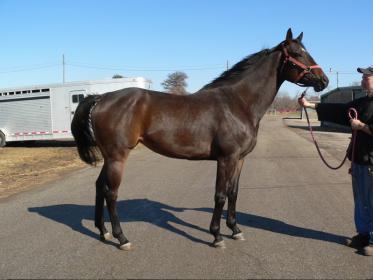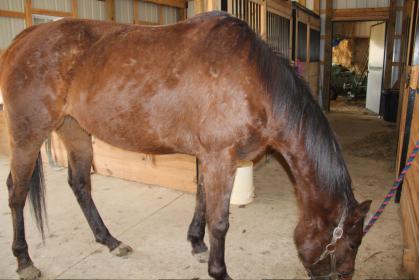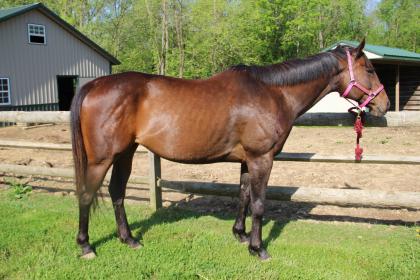Texarkana, what a beautiful post. I have pressed “like”. I was in a similar situation as you describe here too. It’s an eye opener to find out that things you have been told were true as a child perhaps have other aspects of truth that need consideration.
I always think that the thing that non racing people have a problem with is the assumption of “risk”. Breaking and training and racing horses when they are immature is not “risk free”. Non racing people seem to think that to reduce risk, withholding training is the answer. They don’t realize that there is risk of injury, no matter what the trainer decides to do in terms of training, early, or wait until maturity. There is no way to eliminate risk of injury or death, and especially in a discipline that involves high speed, highly competitive, intense competition. You choose your risk, and your horse pays the price of your decision, whatever that may be.
IMO, two year old horses race because they CAN. They CAN do so without incurring injury, if correctly prepared, and lucky. It is true that some people are greedy, and not only people in the racing industry. When greed influences decisions, risk to the horse is increased. But the prime directive of many people involved in racing is to produce a good, competitive sound racehorse who can continue in the industry as an economic competitor over a long period of time. It seems to me that this is “the goal”. The push for the Triple Crown races, and for early Futurities, can be counter to that, encourage owners and trainers to “push”, and there is carnage from that. It has never much appealed to me, personally, when training racehorses. But if I happened to have one, who was ready to run when such a race was available, then yes, I would enter if I could. Let the horse determine his readiness.
Racing is harsh, it is the hardest job a horse can do. There is risk involved, to both horses and riders. But the pay off is really not the prize money, it is the selection of breeding stock that makes for the best breed of horses there is… the Thoroughbred horse. The breed that has “racing” as it’s selection process, proving which horses are sound, which horses are athletic, which horses are brave, which horses are honest. No “inspectors” involved, no one judging them on how they look, which one is the nicest colour, which one has the prettiest eyes or the longest tail. Each one proves their worth, their value, and earns the right to reproduce in the eyes of their owner. And racing decides if those decisions were right or wrong.
If someone thinks that “their” horse is a “better” breed than a TB, let them prove it by preparing them for a race, at two, at three, at five, at seven, at ten years old. However long it would take them. I suggest that they would fail, unless the horse has a large percentage of TB blood in them, and should they be successful in getting the horse ready to compete against a field of TBs, that horse would be outclassed, outrun in this race, again, unless it is mostly TB. Because they can’t do what TBs can do, with 400 years of selective breeding behind them to make the breed what it is. Other breeds are not as strong, not as sound, not capable of withstanding the training necessary at the age it is necessary to do it, do not have the coordination and muscle development at an early age.
Yes, for a horse to have an active and long and successful racing career, he must have good care, good trainers, good owners, and good luck. But if you find a racehorse available for sale, and you are looking for a truly sound horse, this is where you find one. Buyers of such a horse reap the rewards of early training and bone density training, joint surface development that have been done, which they, themselves, do not know how to do if they are not racing people. I think that people who do not know how to successfully do early training with young horses should not be attempting it without guidance, mentorship, from someone who does know. Mistakes can be made, injuries result. Less so with experienced race trainers. Risk is NEVER eliminated, by anyone.



